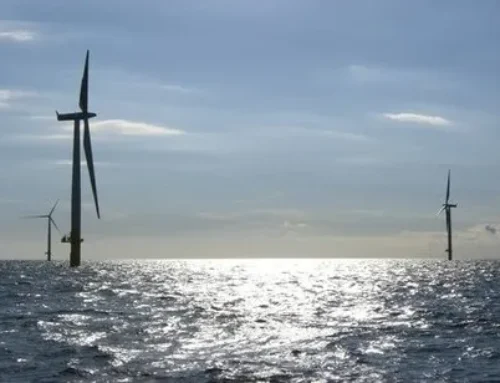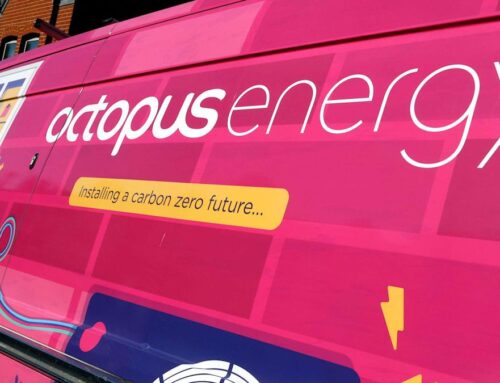Athens-Clarke County Makes Progress Toward 100% Clean Energy Goal
April 15, 2025
The Athens-Clarke County Library recently celebrated the installation of a new solar array that will power a significant part of its electricity needs every year. The new solar panels will save at least $25,000 annually by reducing power bills, and will prevent the emission of 100 tons of carbon into the atmosphere every year.
This solar project is one of many on the way as the local government continues along the path to 100% clean and renewable energy by 2035. The ACC Commission committed itself to this ambitious goal six years ago when it passed the 100% Clean and Renewable Energy resolution at the request of 100% Athens, a local environmental group. These same environmentalists successfully advocated for nearly $16 million in SPLOST 2020 for renewable energy and another $8.5 million in TSPLOST 2023, ensuring that Athens has a funding source to make these clean energy goals a reality.
Since then, the ACC government has started transitioning its fleet to hybrid and electric vehicles, updated its sustainability policy to ensure that all future government buildings are solar-ready, performed energy audits to find ways to improve efficiency and installed numerous solar arrays like those at the library and Akins Ford Arena.
Memorial Park is the next government facility in line to receive solar panels. It will be followed shortly by the Costa Building in downtown Athens, which is being renovated to house local government offices and should be ready for a solar dedication ceremony in May or June, according to ACC Sustainability Director Mike Wharton. In future years, the new Eastside public library will also have a solar array. In fact, it will be designed from the ground up to get as close to net zero carbon emissions as possible.
Commissioner Carol Myers, who was a co-chair of 100% Athens before she became a commissioner, told Flagpole that she’s proud of the progress the local government has made on this issue in the past six years. “We’re ahead of the curve by far, even compared to other progressive cities, because of the money we put in SPLOST 2020 and TSPLOST 2023,” Myers said. “It’s good ethically for the environment, but it’s also good for our pocketbooks.”
Commissioners recently voted to spend $3.3 million from TSPLOST 2023 to purchase 42 electric vehicles and 36 charging stations. That’s enough to make 38% of the local government’s light vehicle fleet either fully electric or hybrid-electric.
While electric vehicles are about $1,000 more expensive on average than their gasoline-powered counterparts, they’ll each save about $850 a year in fuel costs, according to Myers. Even so, the older gas vehicles will be replaced with electric versions only when they come to the end of their lifecycle, which Myers feels is an important point.
“The thing with our renewable energy spending, it’s not like we’re spending it on things that don’t have to exist. We’re spending it on county vehicles, buses, heating and air systems, insulation and power sources for our buildings. These are all critical capital projects that have to happen, whether or not they use renewable energy or fossil fuels that contribute to climate change, are more expensive and affect my grandchildren’s future,” Myers said.
Commissioners Tiffany Taylor, Dexter Fisher and Stephanie Johnson voted against buying the electric vehicles, even though the purchase was already paid for and approved by the community in the TSPLOST referendum. Fisher explained his vote by saying that he worried the federal government and the country as a whole might be moving away from clean energy after the election of President Donald Trump.
“I’m just leery about the [political] climate right now for electric vehicles, what path it’s going down. I’d hate for us somewhere down the road to get these things and get stuck with them and not have any use for them,” Fisher said.
While most in the automotive industry believe electric vehicles are here to stay regardless of federal policy, there is reason to believe that Trump will make Athens’ clean energy transition more difficult. On his first day in office, Trump removed the U.S. from the Paris Climate Agreement and froze funding that President Joe Biden had intended for renewable energy. This included a $5 million grant Athens had received to purchase another 58 electric vehicle chargers, money that is now “held up in the black hole of the federal government,” according to Wharton.
While political winds may be shifting away from renewable energy and electric vehicles on the federal level, Cary Ritzler, one of the co-chairs of the 100% Athens Clean and Renewable Energy Initiative, told Flagpole that the 2019 resolution was passed under very similar circumstances. “This initiative was developed under the first Trump administration before there was any talk of what became the Inflation Reduction Act, which was the federal policy that supported grants for electric vehicles and charging stations. This plan was established for the local government,” Ritzler stressed.
The ACC government spends over $6 million a year on energy, according to Wharton, while Athens as a whole spends nearly $500 million annually in energy costs, according to the U.S. Energy Information Administration. “If we can reduce those costs, that’s money that goes straight back into our community,” Ritzler said. “The change in the federal administration doesn’t change the reasons for doing this.”
While Georgia lags behind most other states in terms of renewable electricity, both political parties here have stressed the economic importance of clean energy more generally. Under the leadership of Gov. Brian Kemp, a Republican, Georgia has become one of the top electric vehicle producers in the country. Electric SUV manufacturer Rivian will break ground on a new electric vehicle factory near Social Circle next year which will provide 7,500 clean energy jobs.
Georgia’s electric grid is still powered primarily by fossil fuels, but it has been growing slowly cleaner and more renewable over time. The U.S. Energy Information Administration lists Georgia’s grid as having been 12% renewable last year, although 3% of this comes from biomass energy, which the ACC government does not consider clean.
After finishing its solar installations this year, the ACC government will produce about 8–9% of its electricity in-house through solar power, according to Wharton. That means Athens can claim that about 17% of its electricity is both clean and renewable by next year. That’s a significant milestone, but far from the goal of 100% by 2035 which is only ten years away.
Despite its best efforts, the local government may not achieve the ambitious energy goals it has set for itself. Nonetheless, Ritzler feels that every step we take towards 100% clean and renewable energy is beneficial both locally and globally, whether we reach the goal by 2035 or not.
“The closer we get to 100%, the cleaner our air gets, the more money we save and the less carbon we emit,” Ritzler said. “The stakes of failure as a country and as a world to address climate change are more dire than any of us want to face. I have friends and family in Asheville, NC who suffered extreme devastation from Hurricane Helene,” which was made more intense due to climate change.
“We’re lucky in Athens, the hurricane missed us by a few miles. We won’t always be lucky,” he continued. “It’s my belief that anything we can do to reduce emissions and preserve a livable future is worth it.”
Like what you just read? Support Flagpole by making a donation today. Every dollar you give helps fund our ongoing mission to provide Athens with quality, independent journalism.
Search
RECENT PRESS RELEASES
Related Post



